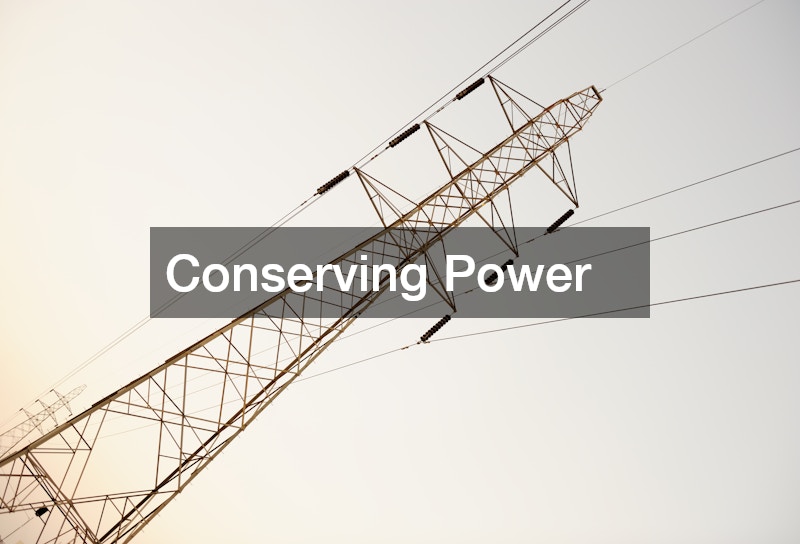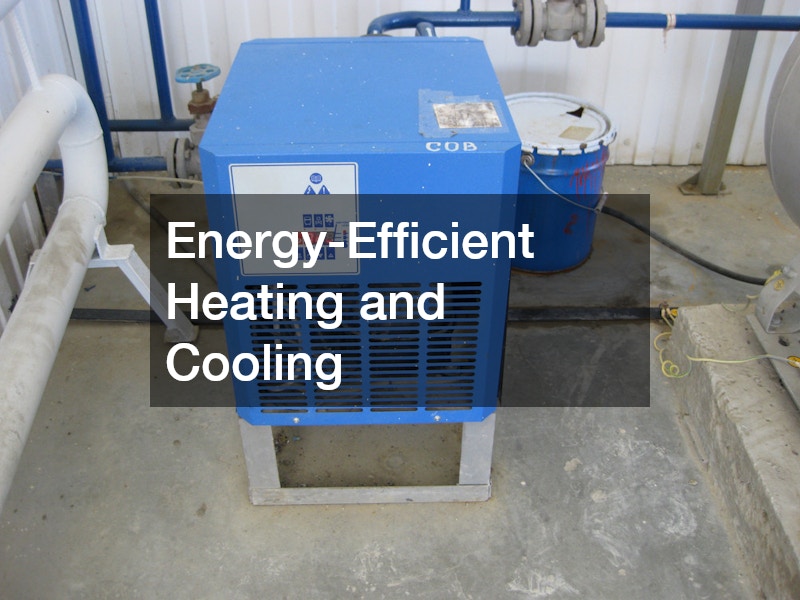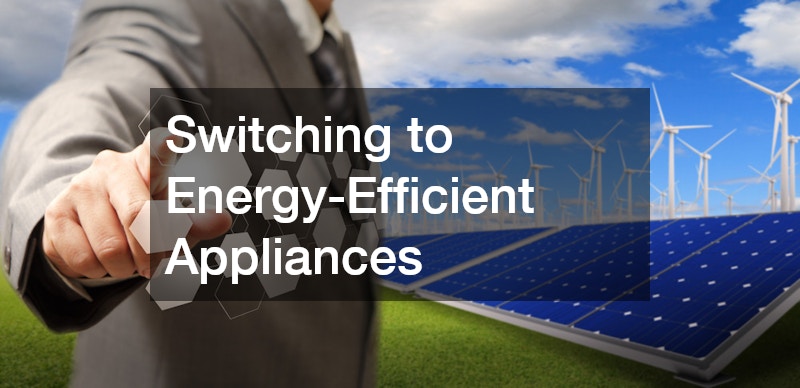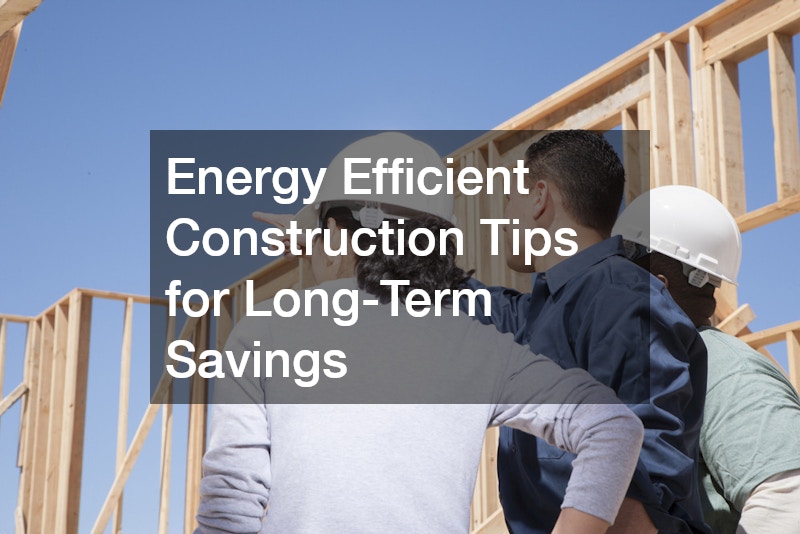
In today’s world, the importance of energy-efficient construction cannot be overstated. With rising energy costs and growing environmental concerns, homeowners and builders alike are turning to innovative solutions that can minimize their carbon footprints while maximizing energy savings. This article will delve into various aspects of energy-efficient construction, exploring how technologies, materials, and strategic planning can come together to create more sustainable living spaces.
From utilizing solar energy through reputable solar companies to optimizing heating and cooling through specialized HVAC companies, each component plays a vital role in the overarching goal of energy efficiency. The transition to more energy-efficient practices aligns not just with personal savings but also promotes ecological stewardship and community well-being. Join us as we explore the multifaceted world of energy-efficient construction and uncover tips on how to implement these practices in your own home.
By integrating the latest technologies and practices, energy-efficient construction can significantly increase a home’s value while providing a more comfortable living environment. Whether it’s implementing robust insulation with an attic insulation company or ensuring your home is equipped for future electric vehicles with EV charging station installation, every element contributes to a holistic approach to modern living. Embracing these innovations is not just a trend; it is a necessary evolution for sustainable development.
Using the Sun’s Energy

Solar energy is one of the cornerstones of energy efficient construction. Solar companies are at the forefront of this movement, providing homeowners with photovoltaic panels and solar roofing solutions that harness the sun’s free and abundant energy. By integrating solar panels into your home, you can significantly reduce your reliance on traditional energy sources, leading to lower utility bills and a reduced carbon footprint.
The initial investment in solar technology may seem daunting, but the long-term savings and benefits far outweigh the costs. Furthermore, many solar companies provide financing options and government incentives to help ease the transition to renewable energy. With the right solar roof battery backup systems, homeowners can even store excess energy generated during the day for use at night or during outages, adding an extra layer of reliability to their energy supply.
As energy prices continue to fluctuate, the shift to solar systems becomes increasingly appealing. Investing in solar energy not only supports energy-efficient construction but also reflects a commitment to environmental sustainability. With an array of options available, working with reputable solar companies will ensure you’re choosing the best solutions tailored to your home’s energy needs.
Additional Roofing Options
When it comes to roofs, energy efficiency starts at the top. Metal roofers offer a unique advantage for homeowners looking to enhance their energy efficient construction efforts. Metal roofs reflect solar radiant heat, which can reduce cooling costs by up to 25% compared to traditional asphalt roofing.
In addition to their reflective properties, metal roofs are durable and often last longer than conventional roofing materials. This longevity means fewer replacements, which contributes to less waste and more efficient use of resources over time. When paired with proper insulation, the combined effects of a metal roof can create a more consistently temperate indoor environment, minimizing the need for heating and cooling.
Every detail in roofing can significantly impact a home’s overall energy efficiency. Therefore, collaborating with skilled metal roofers ensures that your roofing choice aligns with your goals for sustainability and energy conservation. Choosing the right roofing material is a crucial step in the journey toward a fully energy-efficient construction.
Backup Energy
In an era where power interruptions can disrupt daily life, designing your home for energy efficiency must include considerations for backup energy solutions. Solar roof battery backup systems have emerged as a popular solution for homeowners seeking to enhance their energy autonomy. These systems store excess energy generated from solar panels, ensuring that you have access to power even during outages.
Investing in solar roof battery backup systems not only safeguards against unexpected power loss but also reinforces the benefits of solar energy by enabling optimal use of generated electricity. Moreover, these systems can often help you achieve energy independence, reducing reliance on grid electricity and its associated costs. This strategic investment significantly elevates the standard of energy-efficient construction by incorporating resilience into your energy planning.
Backup energy solutions are particularly valuable for those living in areas prone to natural disasters or grid instability. By choosing systems that integrate seamlessly with your solar infrastructure, you ensure that energy efficiency is not just about resource conservation but also about maintaining a consistent energy supply. Therefore, consulting with professionals about your energy needs will result in a more robust and reliable energy efficient construction.
Conserving Power

Power conservation is a critical aspect of energy-efficient construction. One of the most straightforward ways to achieve this is by employing the services of a qualified generator installer. These professionals can help integrate backup generators into your home, providing a seamless energy supply when the need arises.
By utilizing a generator as part of your energy strategy, you avoid the pitfalls of being completely reliant on the grid. This ensures that your household appliances, lighting, and heating systems remain operational during outages, further enhancing your energy resilience. Such strategies, when combined with other energy-saving measures, exemplify the principles of energy efficient construction.
Additionally, conscious habits can amplify efforts to conserve power—simple practices like turning off lights when not in use or using energy-efficient appliances make a significant impact. The synergy between utilizing a generator and adopting power-saving habits fosters a home environment that prioritizes energy efficiency. In summary, working with a skilled generator installer can enhance your energy strategy while promoting responsible energy use throughout your home.
Smart Wiring
Incorporating smart wiring into a home is a progressive step toward enhancing energy-efficient construction. An electrical contractor can design and install systems that allow for intelligent management of energy usage, leading to more efficient operations within the home. Smart wiring adds conveniences such as automated lighting, heating control, and energy monitoring, which can all contribute to lower utility bills and more effective energy management.
With the rise of smart technology, a well-planned wiring system can promote energy-efficient practices throughout your home. Homeowners can remotely control their energy consumption from anywhere, fine-tuning settings to optimize energy use. This level of control not only increases comfort but also encourages energy conservation as users can easily identify and reduce unnecessary power usage.
Smart wiring goes hand in hand with various energy-saving devices and appliances, forming a comprehensive approach to energy efficiency. When integrated with other energy efficient construction elements, smart technology can lead to integrated energy solutions where efficiency is maximized. Therefore, collaborating with an experienced electrical contractor is crucial to harnessing the full potential of smart wiring technology.
Electric Vehicle Charging
As electric vehicles (EV) gain popularity, homeowners are increasingly focusing on integrating EV charging station installation into their energy efficient construction plans. Installing an EV charging station at home not only supports environmentally friendly transportation but also adds convenience for residents. This alignment with green living principles naturally enhances the overall energy efficiency of a property.
Incorporating an EV charging station can also be considered an investment in future-proofing your home. As the demand for electric vehicles rises, having a dedicated charging facility increases property value and appeals to environmentally conscious buyers. Moreover, these installations can be powered directly by solar energy, further reducing the carbon footprint associated with conventional fuel sources.
The convenience of home charging allows for better energy management when combined with solar systems. Homeowners can charge their vehicles during peak solar production hours and rely less on grid electricity, supporting the sustainable lifestyle that energy efficient construction promotes. Engaging qualified professionals in ev charging station installation guarantees safety and efficiency—aspects that are vital as the market evolves.
Energy-Efficient Heating and Cooling

Heating and cooling systems represent a significant portion of energy consumption in any home, making them prime candidates for enhancement through energy efficient construction practices. Partnering with a reputable HVAC company allows homeowners to access the latest technologies that maximize efficiency and minimize waste. Energy-efficient HVAC systems, when properly designed and installed, can lead to substantial cost savings for homeowners without sacrificing comfort.
Regular maintenance of heating and cooling systems is integral to their efficiency. An experienced HVAC technician can perform necessary checks to ensure your system operates at optimal levels, addressing any inefficiencies before they escalate into major problems. By committing to energy-efficient heating and cooling solutions, you contribute to a more sustainable ecosystem while enjoying a comfortable indoor environment.
Moreover, understanding the interplay between insulation and HVAC performance underscores the energy-efficient construction ethos. A well-insulated home requires less energy to maintain desired temperatures, thus allowing HVAC systems to operate more efficiently. This holistic approach encourages a collaborative relationship between HVAC companies and other contractors, solidifying a commitment to energy efficiency.
Additional Heating Methods
Exploring additional heating methods can significantly improve energy efficiency in your home. The services of an attic insulation company can play a crucial role in enhancing the insulation of your property, which directly affects heating efficiency. Proper insulation prevents drafts and heat loss, ensuring that your home maintains a consistent temperature with less energy consumption.
Additionally, alternative heating methods such as radiant floor heating or heat pumps can provide efficient solutions tailored to your specific needs. Each of these technologies can be explored in collaboration with the attic insulation company, as they will have insights on how best to integrate such systems for optimal energy performance. Employing diverse methods of heating adds layers to the energy efficient construction model by promoting flexibility and sustainability.
In summary, evaluating your heating methods through the lens of energy efficiency can yield significant operational savings. Homeowners should actively seek consulting with companies specializing in attic insulation and other heating technologies. By doing so, they ensure their heating solutions align harmoniously with energy-saving goals laid out in modern construction practices.
Window Treatments and Coverings
Utilizing effective window treatments is a subtle yet impactful way to enhance energy efficiency in your home. Home shutters are an excellent choice as they can significantly reduce heat loss during colder months and control solar heat gain in warmer periods. When properly installed, window treatments create an additional layer of insulation, contributing to overall energy savings.
The choice of window coverings impacts not just aesthetics but also functionality. Products designed with energy efficiency in mind, such as thermal curtains and blinds, can complement energy efficient construction efforts. Homeowners who make conscientious choices about their window treatments often find improvements in their home’s energy performance and a reduction in utility costs.
In addition to cost savings, well-designed window treatments can enhance comfort and privacy within the home. Engaging professionals for installation ensures that your coverings are adjusted for maximum efficiency and effectiveness. The interplay between window treatments and overall design emphasizes the significance of thoughtful planning in the realm of energy efficient construction.
Switching to Energy-Efficient Appliances

Switching to energy-efficient appliances is an essential component of energy efficient construction. As appliances account for a large portion of household energy consumption, opting for ENERGY STAR-rated models can lead to substantial savings over time. Furthermore, more efficient appliances utilize advanced technology to provide the same level of performance while consuming less energy, thereby benefiting both the environment and your wallet.
Regular maintenance, including using reliable appliance repair services, can prolong the lifespan of these energy-efficient models, ensuring they remain in optimal working condition. By scheduling routine check-ups, homeowners can prevent inefficiencies that arise from wear and tear, ensuring their appliances operate as intended. This attention to maintenance reinforces the commitment to energy efficiency and a sustainable lifestyle.
In taking proactive measures, homeowners can substantially lower their energy consumption with small yet impactful choices. Reassessing appliances regularly and replacing older, inefficient models plays a crucial role in enhancing the overall energy strategy of the home. Ultimately, the transition to energy-efficient appliances embodies the principles of energy-efficient construction, creating sustainability while promoting modern living standards.
Conclusion
The journey toward effective energy-efficient construction involves a multifaceted approach that includes strategies surrounding solar energy, advanced technologies, and optimized systems. Key elements such as engaging solar companies, implementing smart wiring, and utilizing the services of metal roofers highlight the diversity of strategies available for homeowners. Furthermore, essential practices such as integrating HVAC systems, engaging attic insulation companies, and adopting energy-efficient appliances lend credence to the importance of a holistic approach.
Every step taken toward energy efficiency not only reduces utility costs but also promotes environmental responsibility. From exploring backup energy solutions to enhancing heating methods through innovative designs, homeowners have a wealth of options available to achieve their goals. Emphasizing collaborative efforts with specialized professionals throughout the construction process elevates the standard of energy-efficient construction, fostering a sustainable future.
Ultimately, the aim of energy-efficient construction is not merely financial savings but cultivating a lifestyle that prioritizes sustainability and resilience. Individuals and families who invest in these practices stand at the forefront of a necessary transition while contributing positively to the communities and ecosystems around them. By embracing energy efficiency, we build a brighter future for the generations to come.
